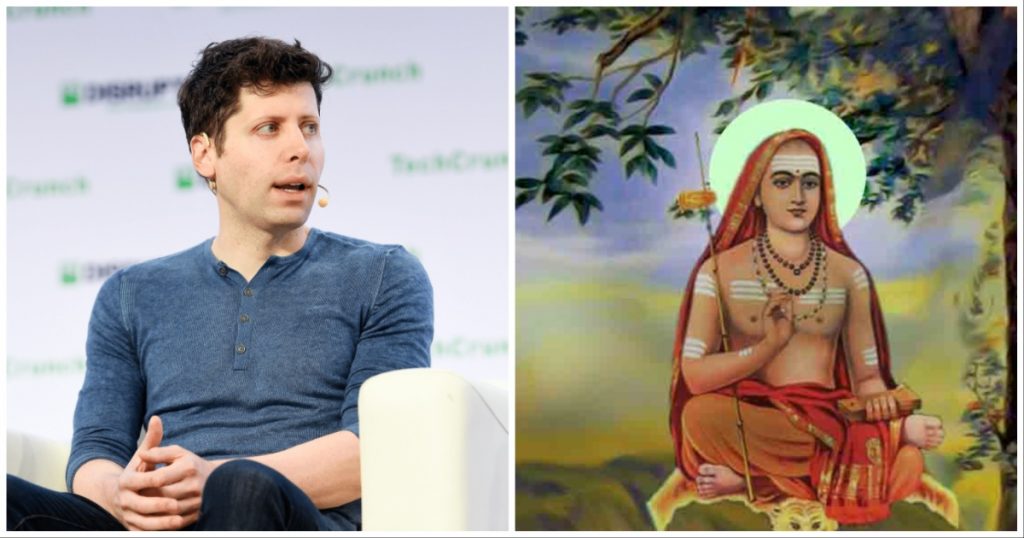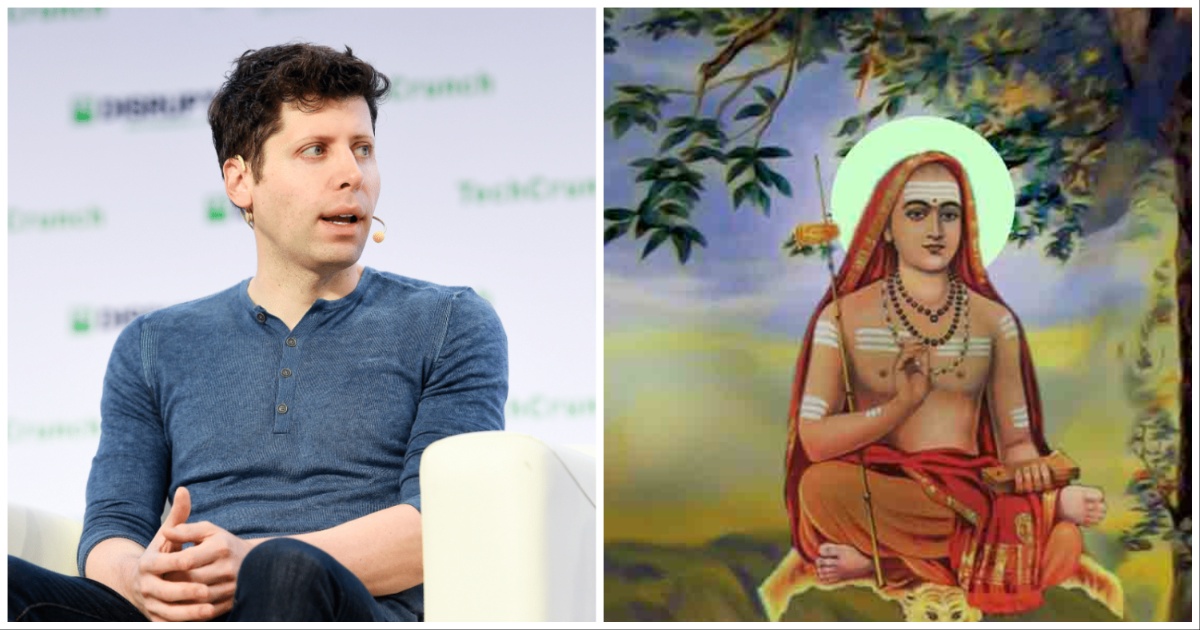The rise of ChatGPT hasn’t only made people more productive, and threatened many jobs, but it has also given rise to many existential questions — with a computer program now displaying human-like intelligence, what does it mean to be human? What is our place in the universe? But the person behind it seems to be relying on some age-old Hindu wisdom to find answers.

Sam Atman, the CEO of OpenAI, which is the company behind ChatGPT, appears to be a believer in Hinduism’s Advaita Vedanta philosophy. “What true thing do you believe that few people agree with you on?” he’d tweeted last year. He’d then answered the question himself. “Absolute equivalence of brahman and atman,” he’d answered.
The equivalence of brahman and atman, of course, forms the core of Hinduism’s Advaita Vedanta philosophy, which was founded by Adi Shankaracharya. It refers to the idea that Brahman, or the infinite universe, is alone ultimately real, while atman, which is the individual self or soul, is merely a manifestation of it. The apparent separation of Brahman and Atman is viewed as an illusion caused by ignorance (avidya). Through self-inquiry, meditation, and a deep understanding of the nature of reality, one can realize the oneness between Atman and Brahman, and attain moksha.
While Altman has clearly said that he deeply believes in equivalence of the atman and the brahman, he has also expressed the idea in different ways. He recently tweeted that “intelligence is an emergent property of physics”. This could be seen as an extension of the same theory — the universe, or the brahman, follows the laws of physics, and over time results in the creation of intelligence such as that in that present in all living beings (and perhaps ChatGPT).
Altman has also indicated that he’s studied Hindu philosophy. When asked on Twitter as to what his source material for Advaita study was, he replied “I think Maharshi got it perfect with “ask yourself, who am i?” Takes a while though.” Altman is referring to Hindu sage Ramana Maharshi, who’d lived between 1879 and 1950, and had attracted both Indian and western followers.
Mahrishi Ramana had urged people to question “who am I?”. He said that the ‘I’ can only continue exist in association with the objects it identifies with — it cannot exist by itself in isolation, free of all thoughts and ideas. There is no such thing as an ‘I’ thought that isn’t holding onto an idea or a perception or a thought or a belief. If you sever all of those unwanted accretions from this sense of ‘I’ that you inherently have, that sense of ‘I’ will not be able to subsist independently. It has to go back to its source and disappear, thus resulting in the fundamentally same atman and brahman merging into one.
Sam Altman isn’t the only tech giant who appear to be a keen follower of Hindu philosophy. Apple’s Steve Jobs, most famously, had visited India in his youth in search of Neem Karoli Baba, and had returned to the US barefoot and wearing saffron robes of a sadhu, and Meta’s Mark Zuckerberg too has looked at Neem Karoli Baba for inspiration. Among prominent scientists, Robert Oppenheimer had also read the Bhagawad Gita, and had quoted it after the first nuclear test, saying “I am become death, the destroyer of worlds”. The world has changed fundamentally over the last century or so, but some of the people who’ve been at the forefront of this change seem to continue to lean on Hinduism’s millennia-old wisdom to help guide their actions.
